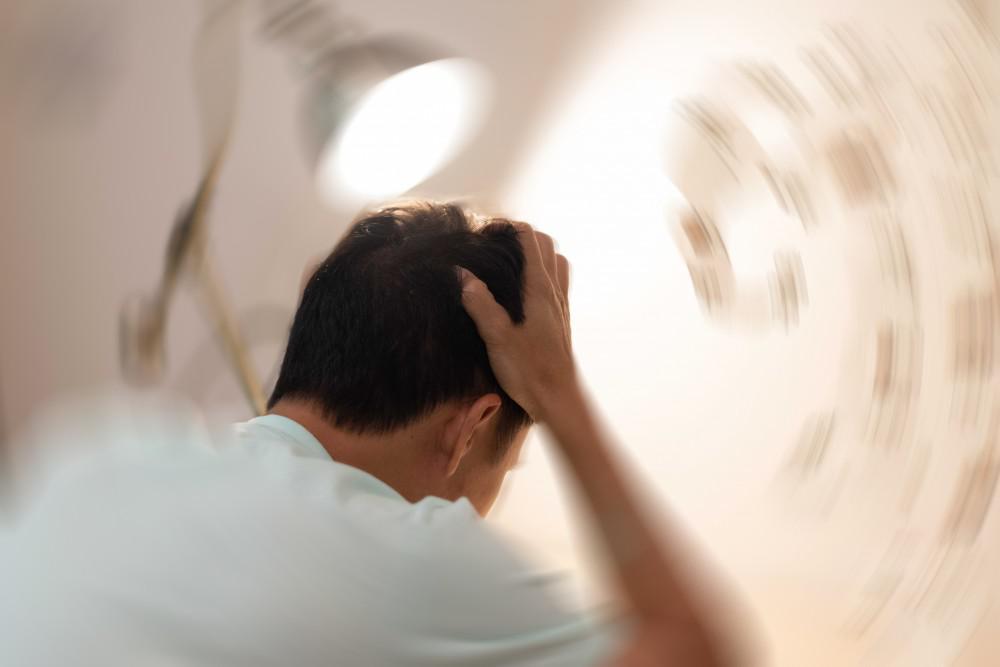This post is also available in:
Tiếng Việt (Vietnamese)

Know the basics
What is vertigo?
Vertigo is a sensation of spinning, either you or your environment is spinning. Vertigo is characterized by feeling of everything around you is spinning or pulled in one direction. Vertigo is commonly a symptom of many different illnesses and disorders.
How common is vertigo?
Vertigo is extremely common. It can be managed by treating the illnesses and disorders causing vertigo. Please discuss with your doctor for further information.
Know the symptoms
What are the symptoms of vertigo?
The common symptoms of vertigo are:
- Spinning;
- Tilting;
- Swaying;
- Unbalanced;
- Pulled to one direction;
- Feeling nauseated;
- Abnormal or jerking eye movements (nystagmus);
- Headache;
- Sweating;
- Ringing in the ears or hearing loss;
These symptoms can last a few minutes or prolong to few hours or more. There may be some symptoms not listed above. If you have any concerns about a symptom, please consult your doctor.
When should I see my doctor?
If you have any signs or symptoms listed above or have any questions, please consult with your doctor. Everyone’s body acts differently. It is always best to discuss with your doctor what is best for your situation.
Know the causes
What causes vertigo?
Vertigo is commonly caused by the illnesses or disorders that affect the inner ear, including:
- Benign paroxysmal positional vertigo: There is a change in head position causing a sudden sensation of spinning, for example, the appearance of a small crystals breaking loose in the canals of the inner ear and touching the sensitive nerve endings inside.
- Acute labyrinthitis: caused by an inflammation of the balance apparatus of the inner ear caused by a viral infection.
- Ménière’s disease: is caused by a change in the volume of fluid inside the inner ear.
Vertigo can be caused by other health conditions, containing:
- Head or neck injury;
- Brain problems such as stroke or tumor;
- Certain medications that cause ear damage;
- Migraine headaches;
Know the risk factors
What increases my risk for vertigo?
There are many risk factors for vertigo, such as:
- Age: It commonly occurs in the old more than in the young;
- History of cardiovascular conditions, for example angina, stroke;
- History of diabetes, Parkinson’s disease;
- Dysfunctions of the ear;
- Taking certain medications;
- History of ear surgery;
- Anxiety and depression.
Understand the diagnosis & treatment
The information provided is not a substitute for any medical advice. ALWAYS consult with your doctor for more information.
How is vertigo diagnosed?
Vertigo can be diagnosed through:
- Your description of what you are feeling.
- Evaluation of your eye to look for abnormal jerking movements (nystagmus).
- Usually, no further testing is needed unless your doctor suspects you have central vertigo.
- Computed tomography (CT) scan or magnetic resonance imaging (MRI) of your brain for checking if you have central vertigo.
How is vertigo treated?
Sometimes, patients can be recovery after episodes of vertigo because of the adaptation of their body.
If necessary, treatment for vertigo depends on what’s causing it, including:
- Vestibular rehabilitation: to strengthen the vestibular system.
- Canalith repositioning maneuvers. a series of specific head and body movements for benign paroxysmal positional vertigo will be guided for patients.
- Medicine: to relieve symptoms such as nausea or motion sickness associated with vertigo. Antibiotics or steroids if vertigo is caused by an infection or inflammation. Diuretics (water pills) may be prescribed in case of meniere’s disease;
- Surgery: When vertigo is caused by a more serious underlying problem, such as a tumor or injury to the brain or neck.
See more:
Lifestyle changes & Home remedies
What are some lifestyle changes or home remedies that can help me manage vertigo?
The following lifestyles and home remedies might help you cope with vertigo:
- Taking Vitamin D may be helpful for paroxysmal positional vertigo.
- Using ginger root, ginkgo biloba, and coriander may help reduce vertigo symptoms in some people.
- Physical therapy.
- Acupuncture to relieve symptoms of some types of vertigo.
- Avoid substances affecting circulation, including caffeine, tobacco, or alcohol.
- Drink plenty of fluids.
- Essential oils, including peppermint, ginger, lavender, and frankincense to relieve symptoms of vertigo
Sources
Vertigo. https://www.drugs.com/health-guide/vertigo.html. Accessed July 22, 2016.
Vertigo. http://www.webmd.com/brain/vertigo-symptoms-causes-treatment. Accessed July 22, 2016.
Review Date: January 4, 2017 | Last Modified: January 4, 2017

